Pinky Marasigan, a physical therapist at Amita Health Presence Resurrection Medical Center in Chicago, takes an extra hour after each workday to wash up and change her clothes before entering her car to go home.
She does it “so that my car stays clean and I don’t get my family sick,” Marasigan said. “I know that people think we are strong heroes in scrubs, but we are also filled with fear as we face this potentially deadly virus.”
Since the beginning of the COVID-19 pandemic, the mental health of the general population has been a major concern. A Kaiser Family Foundation poll has found that the people’s mental health has gotten worse overall since the start of the pandemic. The concerns, however, have largely been for the general public people as a whole, with less attention going towards the mental health of the people most greatly affected: doctors and other health professionals.
A Cambridge University study reports that because of the increased pressure doctors face under typical circumstances, the COVID-19 pandemic puts them at an enhanced risk for psychological distress.
In addition, a study conducted in China before the pandemic reached the U.S. revealed a need for psychological support for doctors and nurses. This need will extend beyond the pandemic, the study predicted.
“These findings suggest that, among Chinese health care workers exposed to COVID-19, women, nurses, those in Wuhan, and front-line health care workers have a high risk of developing unfavorable mental health outcomes and may need psychological support or interventions,” the study stated.
Barb Lewis, a registered nurse in the Medical Cardiac Intensive Care Unit at Advocate Lutheran General Hospital in Park Ridge, said dealing with deaths has been the hardest part for her.
“At work, there is just no time to process a tragic event, mentally, physically or emotionally,” Lewis said. “You just keep moving on to the next crisis at hand.”
On top of that, Lewis said procedures to treat crashing patients—those who are rapidly declining or dying—have changed as a result of COVID-19, making the situation even more difficult.
Typically, there would be a respiratory therapist, a nurse and, on average, 10 others assisting. Now the respiratory therapist and nurse are treating the crashing patient, and the 10 others are giving orders from the opposite side of a glass window.
“It is like watching a drowning man when a Covid patient crashes,” Lewis said. “We keep trying desperately to throw life preservers to him or her, but they just can’t catch them and drown before our very eyes.”
Health care providers may have a stronger reaction to the stress they face from the pandemic than the general population, according to the Centers for Disease Control and Prevention. However, the agency gives no specific advice for health care workers, only for people at a higher risk as a whole.
Knowing the facts about the virus can relieve the most stress for anyone, especially those in higher-risk situations, such as healthcare workers, according to the CDC.
“Knowing the facts and stopping the spread of rumors can help reduce stress and stigma,” the organization stated. “Understanding the risk to yourself and people you care about can help you connect with others and make an outbreak less stressful.”
In Illinois, Dr. Ngozi Ezike, the director of the Illinois Department of Public Health, cried during an October 2020 press conference and had to step away while announcing the daily case and death total, giving Illinoisans a visual example of the toll the pandemic is taking on medical professionals.
Speaking with NBC 5 Chicago after the press conference, Ezike said that the state of the pandemic was giving people a “PTSD-type” feeling, as the second wave of the virus kicked in.
“It’s incited some PTSD-type feelings as we think about starting Round 2, [and] just remembering how difficult Round 1 was,” Ezike said.
John Franklin, a Northwestern Medicine psychiatrist, said the lingering effects are alarming.
“What’s disturbing and concerning for mental health professionals is some of the lingering psychological effects,” Franklin said. “Many are experiencing post traumatic stress disorder.”
Sebastian Carrillo-Perez, a personal trainer who contracted COVID-19 in November, said he has experienced some of these psychological effects firsthand.
“[After quarantining] I’ve had this fear of giving it to someone else and having to live with that,” Carrillo-Perez said.
Judith Moskowitz, a social psychologist and an associate professor at Northwestern University’s Feinberg School of Medicine, said while she is doing as well as she can during this time, she recognizes how difficult it can be for others.
“It could be so much worse [for me], so I’m sort [of] focusing on that because I’m doing better [than others],” Moskowitz said.
In Marasigan’s experience, another source of stress for health care workers comes from the frustration over people consciously not following CDC guidelines, such as not social distancing or not wearing a mask. Marasigan said that it is frustrating because people who do follow the guidelines end up being impacted by those who do not.
“I had to hold in my arms a crying father who woke up from a coma to find out his son and his wife are both dead from this virus,” Marasigan said. “I had to hold the hand of a young father whom I had the honor to get back on his feet and helped rebuild his strength enough to go without needing supplemental oxygen use, but whose heart muscles are so ravaged he now has to carry around an external cardiac defibrillator, [as well as] a young man who regained independence with walking but has to be on dialysis now. None of them wanted to catch this virus.”
Lewis said that she too was frustrated by these people not following CDC guidelines at the start of the pandemic, but she no longer is.
“I used to feel angry at them but [I] no longer have the energy to respond,” Lewis said. “I just feel sorry for them and hope and pray that they or their loved ones don’t get very sick or die from COVID-19.”
Moskowitz said using different strategies to keep a positive outlook is important during this time.
“The first three skills… that I think can be really helpful on a daily basis are noticing positive events, savoring [the positive events] and gratitude,” Moskowitz said.
Both Marasigan and Lewis said that the best gestures people can make towards health care workers is to follow safety protocols.
“Every time I see someone wearing a mask I feel supported,” Lewis said. “Every time I see someone washing their hands [or] notice someone socially distancing I feel supported.”
Franklin said there are positive messages amid the pandemic and that he sees steps being taken toward better mental health awareness.
“The pandemic in a way has given us an opportunity to normalize that people do have a range of feelings, and now that everyone is feeling some degree of anxiety and depression, it may be easier for people to say, ‘maybe I’m not so different than other people,’” Franklin said.

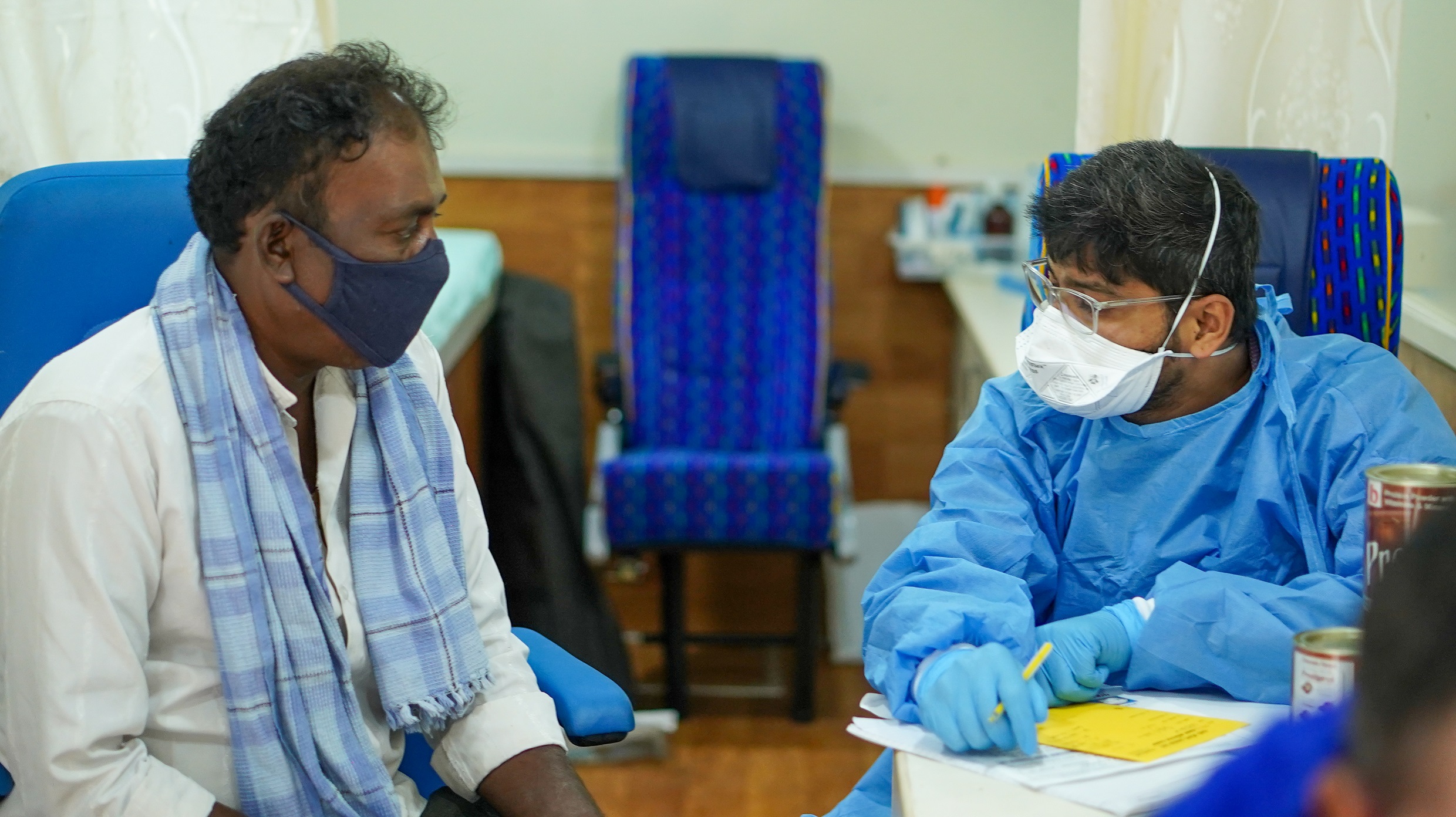

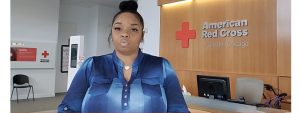

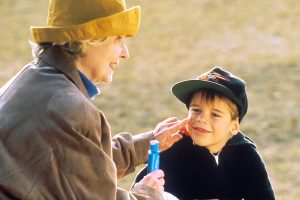
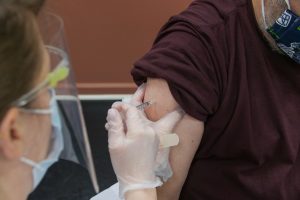


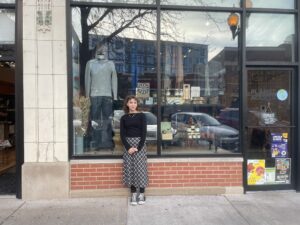


Be First to Comment